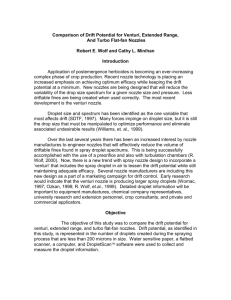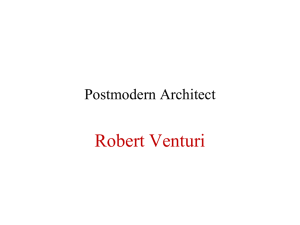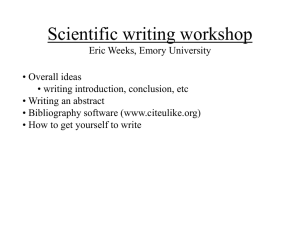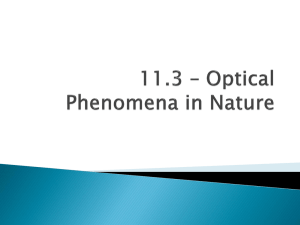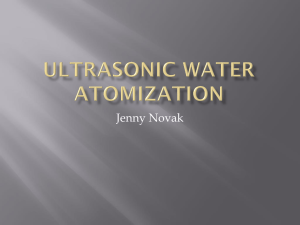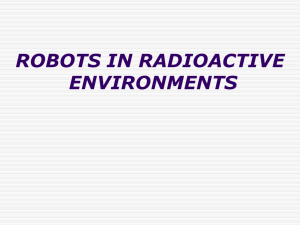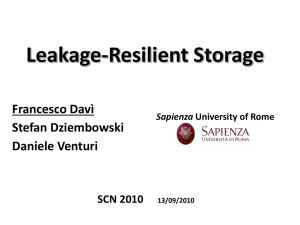PWM Efficacy - Biological and Agricultural Engineering
advertisement
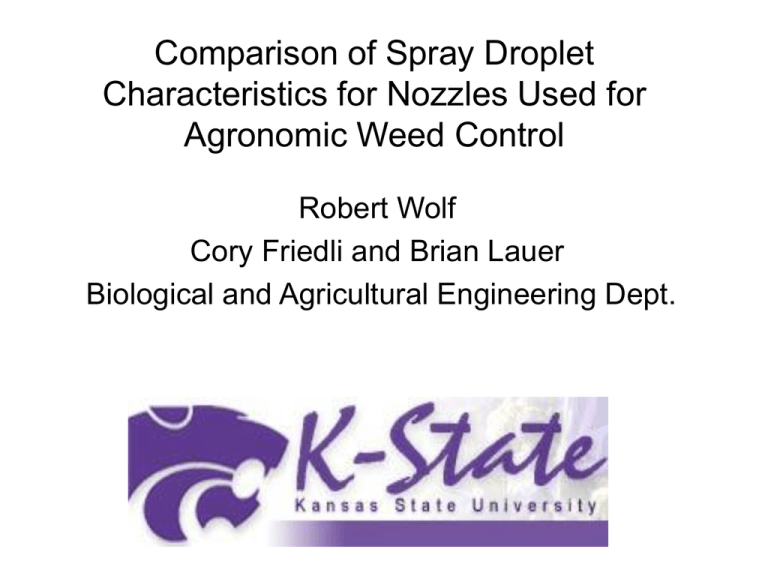
Comparison of Spray Droplet Characteristics for Nozzles Used for Agronomic Weed Control Robert Wolf Cory Friedli and Brian Lauer Biological and Agricultural Engineering Dept. Nozzle Efficacy/Drift Slope Extended Range • XR, TR • • Turbo Flood Turbo TeeJet • • • Air Mix AI XR GuardianAir Chamber Design Venturi Design - II Venturi Design - I • • • AI Ultra Low Drift Turbo Drop • TTI New 2008 Test Nozzles! Turbo TwinJet GuardianAir - Hypro Air Mix & TDHSTF- Greenleaf AI XR TeeJet Objective The objective of this study was to compare droplet spectra characteristics for nozzle types used to apply postemergence herbicides. Materials and Methods cont.: 24 ft. spray bar 7.5 GPA @ 10 MPH 0.24 GPM / nozzle Nozzle Spacing: 20 in. Boom Height: 20 in. Materials and Methods cont.: 1. XR Flat-fan (XR) 2. DR Flat-fan DR 3. Turbo Flat-fan (TT) 4. Turbo Twin Flat-fan (TTJ60) 5. AIC Venturi Flat-fan 6. TurboDrop High Speed Twin-fan 7. Ultra Lo Drift (ULD) 8. TTI Venturi Flat-fan 9. BFS Venturi Flat-fan 10. AIXR Venturi Flat-fan (AIXR) 11. Air Mix Venturi Flat-fan (AM) 12. GuardianAir Venturi Flat-fan (GA) Results Discussion DropletScan used to analyze droplets Droplet scan software was used for droplet characteristics Volume Median Diameter, Percent Area Coverage, Deposition Statistical analysis with SAS Droplet Size Volume Median Diameter 600 540 506 487 467 500 491 475 475 462 460 a 391 Microns 400 b d bc bc cd 300 d d 377 372 cd c f ef 200 100 0 C AI 2 00 1 1 X AI R 5 02 0 11 AM 5 02 0 11 5 02 0 11 S BF D R 5 02 0 11 G 25 0 10 A1 TD H 02 0 1 F1 T S T 5 02 0 1 T1 T 2 00 1 1 TI T 5 02 0 11 0 6 TJ U LD 2 00 2 1 XR 03 0 11 Coverge Coverge Across Nozzle Type 20.0 16.0 13.9 14.5 13.7 14.0 12.0 cd 10.0 cd bc 16.9 17.4 a a 15.1 14.1 12.3 bc 13.5 cde c 13.6 12.9 b de 10.7 cd f 8.0 6.0 4.0 2.0 11 00 3 XR 12 00 2 U LD 00 25 J6 01 1 TT I1 10 02 TT 11 00 25 TT ST F1 10 02 TD H A1 10 02 5 G 5 11 00 2 R D BF S1 10 02 5 11 00 25 AM AI X R 11 00 2 11 00 25 0.0 AI C Percent Area Coverage 18.0 3.0 11 00 3 3.8 XR b 12 00 2 b LD 5.9 U b J6 01 10 02 5 5.1 TT 5.3 I1 10 02 7.0 TT 11 00 25 b ST F1 10 02 4.8 TT H 5.3 TD b A1 10 02 5 5.0 G 5 b 11 00 2 b R 5.5 D 5.4 BF S1 10 02 5 b 11 00 25 5.2 AM 11 00 25 4.0 R 11 00 2 6.0 AI X AI C Gallons per Acre Deposition Deposition Across Nozzle Type 8.0 6.5 7.0 5.5 b b b b 2.0 1.0 0.0 Findings • Statistical differences were found for all droplet characteristics measured. • TTI - largest droplets, with lowest coverage and deposition. • XR - smallest droplets, with most coverage and deposition. • ULD – middle on droplet size, 2nd best coverage and deposition. • Venturi design II group as an average had smaller droplets, better coverage and deposition than the venturi design I group. Conclusions: • The findings support that the use of nozzle types producing smaller droplets tend to have more coverage and deposition than those producing larger droplets. • Data also supports that the newer designs in venturi nozzles will provide more coverage and deposition than the older venturi nozzle designs. Thanks

